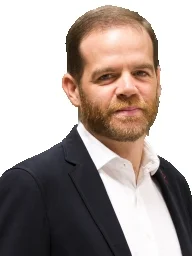Esade to partner on the European EXPAND programme to address social innovation challenges
Based on the belief that societal challenges can begin to be overcome through access to the right tools, business schools such as Esade have teamed up with design thinking experts, social entrepreneurs, and practitioners to develop a unique social innovation methodology to be used at universities to tackle systematic problems in society. The partnership will take the form of a three-year Eramus+ pilot programme called EXPAND and will initially result in a four-month idea accelerator that challenges students to design viable solutions for homelessness.
The project partners include Esade – through its Institute for Social Innovation (IIS), the Esade Entrepreneurship Institute (EEI) and Fusion Point, led by Lotta Hassi and in charge of designing experiential learning modules through design thinking–, ESSEC Business School (France), and Vlerick Business School (Belgium), as well as the consultancies Beta-i and Espacité, the H-FARM Education hub, the global impact ecosystem Impact Shakers, the non-profit organisation for social (re)integration Diogenis, and the bio-design agency GLIMPS.
For Ignasi Martí, director of Esade’s Institute for Social Innovation, ‘The project is a collaborative – and highly necessary – experiment to combine new approaches and teaching tools with the concern to understand and address complex societal problems.’ Lisa Hehenberger, director of the Esade Entrepreneurship Institute, explained, ‘We see the EXPAND project as an opportunity for our students to address complex societal challenges with an entrepreneurial mindset.’
In light of the main societal challenges, the first Expand accelerator will focus on the issue of homelessness, due to the worrying figures and the European Union’s efforts to end homelessness by 2030. According to the European Parliament, every night more than 700,000 people sleep on the streets in Europe, an increase of 70% over the last ten years. In the last available global survey, some 100 million people were estimated to be homeless, with as many as 1.6 billion lacking adequate housing.
Methodology and content
Over 2021, the nine EXPAND partner organisations will prepare the modules and content for the idea accelerator and research and map the homeless ecosystems in Spain (Esade), France (ESSEC), and Belgium (Vlerick).
From January to May 2022, the programme will launch the four-month idea accelerator, selecting 48 students from the three partner universities to participate in ten intensive weeks of solution ideation. The students will receive support to develop their idea, build a prototype, market-test the solution, and create their social business model. Finally, they will present the projects developed during the accelerator programme.
Once the best practices have been compiled amongst all the project partners and participants, the project will develop the ‘Expand Toolbox’, a unique and practical guide for university teaching staff including the best practices for designing a challenge-based idea accelerator and replicating the methodology at other universities and institutions.




